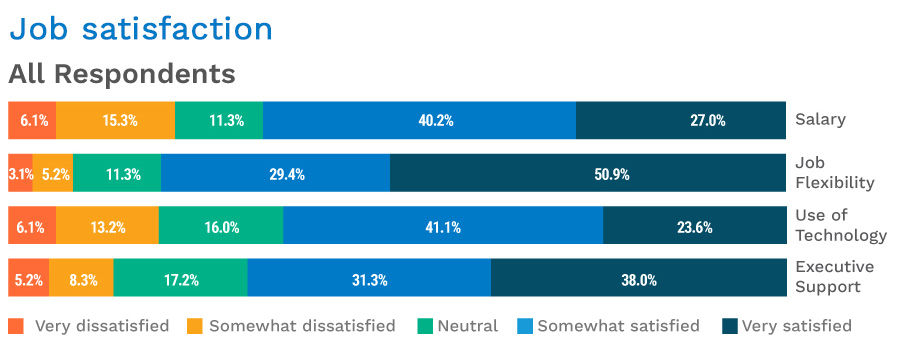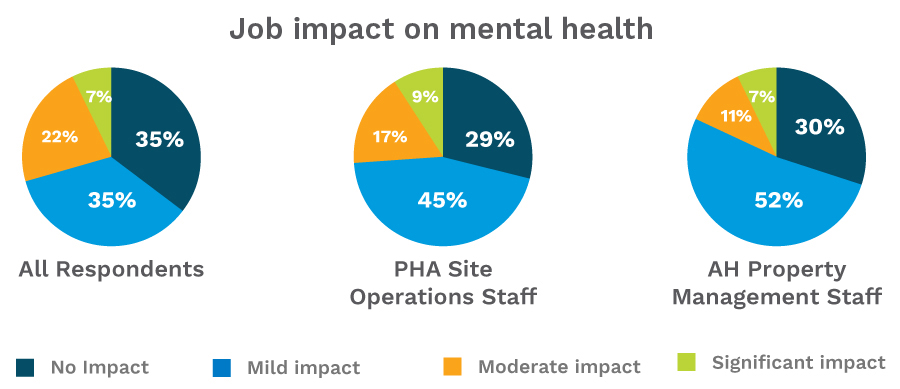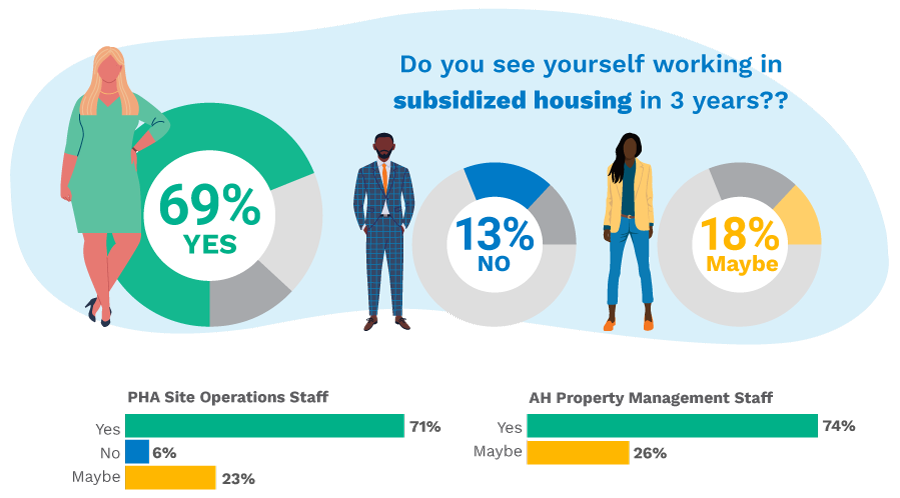Want high-performing subsidized housing operators? Be a supportive asset manager.
Affordable Housing asset management is the comprehensive process of overseeing a property’s financial performance, physical condition, and compliance with applicable regulations. Effective asset management helps investors, lenders, state agencies, and other capital providers receive the expected benefits while managing their risk. This function involves gathering, monitoring, and reporting information, analysis and risk management, and occasional problem-solving.
One of the main drivers of portfolio health is property manager performance. Any high-performing asset manager must understand the expertise, capacity, and ongoing commitment of the property managers who directly operate their assets. Longstanding challenges facing Affordable Housing – coupled with health trends and macroeconomic headwinds following COVID-19 – have made the job of both property managers and asset managers more demanding. These issues fuel concerns about property management staff burnout and attrition – and portfolio underperformance.
Insights from subsidized housing operators
The recent Voice of the Subsidized Housing Operator report from MRI Software provides insights into the current challenges and opportunities facing Affordable and Public Housing operators. It also shares ideas on how all stakeholders, especially asset managers, can address housing provider concerns. Focused on site management and operations, the report summarizes a survey of over 320 Affordable and Public Housing professionals across the US. The study uncovers sentiments about key job priorities like salaries, job flexibility, executive support, and technology use. It also examines how work affects mental health, staff commitment to the industry and their current roles, training needs, and views on the future of subsidized housing.
How asset managers can help subsidized housing operators succeed
The report highlights historic obstacles in subsidized housing, yet some findings are surprisingly positive. Despite recent negative headlines and portfolio performance challenges, most survey respondents are satisfied with important occupational aspects like salaries, job flexibility, executive support, and technology.

There’s no substitute for direct, open, and constant communication with property management to boost morale and ensure their needs are being met – not to mention gain the best source of information. The report data nonetheless suggests that in 2024, at a macro level, subsidized housing asset managers shouldn’t panic about the overall sentiments of their property managers. Unless you’re overseeing a uniquely challenged asset or portfolio with well-known site management issues, your operational team is (most likely) generally happy with their work. But this finding isn’t a cause for complacency.
Promote positive property manager mental health
Mental health issues afflicting property managers – in both conventional multifamily and subsidized housing – have been widely reported since the pandemic. The health crisis was followed by millions of renters falling behind on payments and macroeconomic pressures led by inflation and higher operating costs. This mountain of obstacles has been too much for property managers, causing significant stress, burnout and, for some portfolios, high management attrition.
More than one year after the pandemic, we measured how deeply mental health issues are still being felt in Affordable and Public Housing communities by management staff and identify potential causes of negative mental health. A surprising survey result is that work has little to no perceived effect on mental health. When asked if their job negatively impacted their mental health, 70% of respondents report no impact or mild impact.

As expected, the study reveals dissatisfaction with salary or job flexibility as the biggest potential drivers of negative mental health.
Interestingly, the survey indicates that portfolio or caseload size is not directly correlated with an operator’s perceived job impact on mental health. Staff with larger portfolios do not report higher levels of mental health impact than professionals with smaller portfolios. However, as indicated earlier, respondents also report high levels of satisfaction with job flexibility. This may mitigate the group’s potential stress from their workload (portfolio size). Without that pre-established flexibility, respondents with bigger portfolios might report higher levels of negative mental health.
What do the results mean for asset managers? Those who want to optimize portfolio performance by addressing property manager needs should continue to focus on salaries, job flexibility, and other employee perks like training.
Improve job flexibility and work-life balance
Despite earning modest wages, management staff remain committed to their jobs for many reasons, including the industry’s efforts to improve work-life balance. By employing hybrid work schedules and PropTech tools, allowing managers to work remotely, and using web-based applications, the housing industry now offers site staff unprecedented flexibility. Asset managers looking for budget-neutral ways to promote positive property manager mental health should seek new tools and strategies to make managers more efficient or simplify their work.
Advocate for higher salaries
Additionally, asset managers should allocate funds to management staff compensation when additional resources are available. At the very least, asset managers should know how much property management staff make relative to each person’s experience and the market. Even during uncertain economic times, some asset managers are implementing wage increase strategies like property performance-based bonuses. These inexpensive approaches can boost compensation while offsetting the costs.
Despite positive indicators, one of the most impactful ways to reward historically underpaid professionals is simply by increasing their pay. Between addressing salary concerns and increasing job flexibility, subsidized housing asset managers can promote positive property manager mental health and do better for their portfolios and organizations.
Embrace technology adoption and change management
The survey poses questions about the future of Affordable Housing, such as anticipated industry challenges and views on new technology and digital disruption. Over 40% of respondents view new technology as a challenge while more than 30% view it as an opportunity. Seasoned professionals comprise over 90% of the “challenge” group, showing their trepidation about change. Respondents overwhelmingly believe the main goal of adopting new PropTech is to improve efficiency.
As PropTech innovation continues and the housing industry adopts newer tools, all housing asset managers should ensure their organizations continue to invest in change management and training to help hesitant staff not only welcome change but also become expert users. A housing provider’s ability to achieve a high ROI on technology rests heavily on its commitment to change management – for which asset managers bear significant responsibility.
The report analysis reveals important differences across age groups. While most respondents are satisfied with available PropTech tools, younger respondents (ages 24–44) are the most critical of their technology. This result could point to higher expectations for technology among digital-native millennials.
Invest in the next generation of talent
Examining emerging challenges like staff attrition concerns and digital disruption, respondents were asked if they see themselves working in subsidized housing and in site management and operations in three years. Across all focus groups, future industry commitment is high: 69% of respondents see themselves working in the industry. The youngest cohorts report the highest commitment: the 25–34 and 35–44-age groups report 87% and 82%, respectively. The PHA site operations group is slightly higher at 71% and the Affordable Housing property management group is the highest at 74%. Commitment to site management and operations is also surprisingly high but slightly lower than industry commitment.

These commitment levels remind us that many professionals in the subsidized sector are motivated by the mission of housing the less fortunate.
The data provides several learning opportunities for asset managers seeking ideas to prepare their portfolios and organizations for the future. They must focus on younger operators who have an exceptional passion for serving underprivileged communities. Although many organizations are led by seasoned management staff, they should attract and invest in younger talent by considering their higher expectations for technology.

Asset managers can capitalize on the dedication of the next generation with advanced PropTech tools that help simplify daily tasks, communicate and exchange information with residents more efficiently, and manage increasingly complex housing regulations. Retaining and preparing the next generation of site management staff will require investments in the latest property, financial, and housing program technologies.
Get the full report
The full Voice of the Subsidized Housing Operator report is now available. You can download it here. We’re excited to share it and hear your thoughts.
Handle your CAM Recoveries with AI-Powered Managed Services
The reconciliation process for CAM Recoveries is coming due, but your team is dreading how to set them up. You need the necessary tools and bandwidth to set them up accurately and on time. With MRI’s Managed Services, you can improve this process to …

